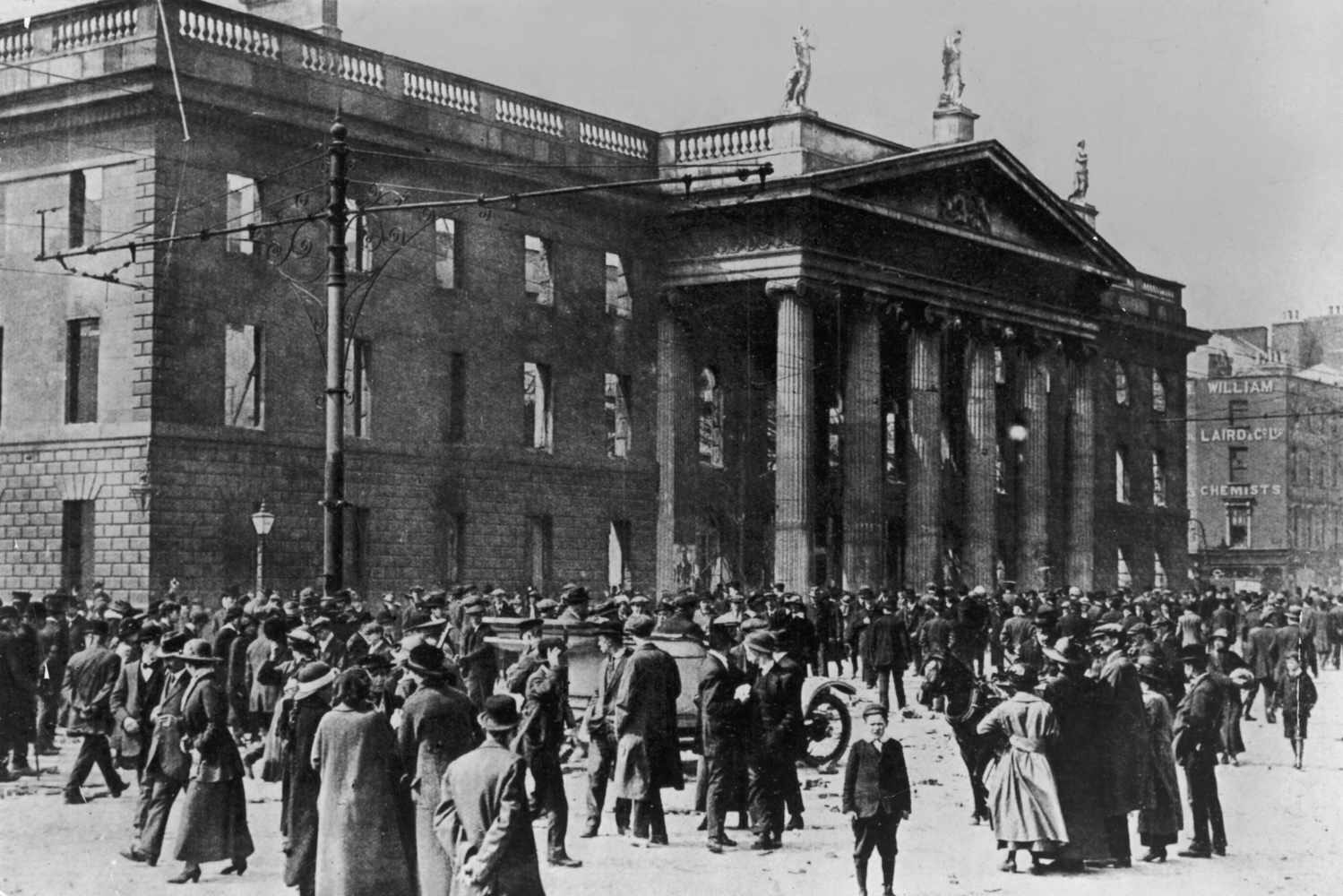– Aidan Rowe discusses UCD’s Disaffiliation from the Union of Students of Ireland, its implications for the student movement, and whether there actually is a student movement in Ireland .
It is something of a paradox that leftists – those progressives who fight for a radical restructuring of society – often end up adopting antiquarian positions that, viewed from the outside, appear bizarre and irrelevant to present-day struggles. This has certainly been true of left-wing students’ positions on the Union of Students in Ireland (USI) for some time. We understand more keenly than most the historical importance of trade unions, which leads to the adoption, often without much debate, of a moralistic pro-USI position based in an abstract pro-unionism: one which loses sight of why leftists engage(d) with unions in the first place. We feel morally obligated to beat our heads against that particular brick wall regardless of the outcome, and then wonder aloud why more students don’t wish to join us in this particular form of Sisyphean masochism.
This problem comes most sharply into focus whenever USI affiliation is put to a vote. The debate surrounding USI affiliation is largely a drama involving two antagonistic sections of right-wing students (the pro-USI faction composed largely of USI bureaucrats and those with USI ambitions; and the anti-USI faction composed of SU bureaucrats, Young Fine Gael, Ógra Fianna Fáil and others) in which the left plays a supporting role, albeit a significant one. Our typical position of critical support for USI (“a bad national union is better than none”, “change it from within”), along with our (usually) strong on-the-ground campaigning skills, delivers crucial votes for USI which keep colleges affiliated to a structure which offers nothing to students beyond an empty, apolitical and ineffectual “representation”, on the basis of an abstract call for reform from within which we have no capacity to carry out and which is arguably impossible within the context of the anti-democratic mechanics of USI. In other words, left-wing support is often crucial in the reproduction of a disastrous and reactionary institution across generations of students. Meanwhile, sensible arguments grounded in fact are conceded to the right and spun to reactionary effect: USI is useless and wastes our money (which is true) so let’s keep our money and use it for our own lobbying (which is a terrible idea).
The margin in the UCD disaffiliation vote was about 600 votes. I think it is realistic to say that had the left in UCD (however weak and disorganised it might be at the moment) engaged in sustained campaigning and provided that crucial pole of left-wing critical support it would probably have been enough to tip the balance the other way. We could have won the argument, at least with some students, that an anti-USI protest vote, however justified by USI’s record and structures, would have damaged the student movement as a whole. But is that really an argument we want to win?
The path to success for any group begins with the admission of reality and the abandonment of unhelpful illusions. For the student left, the key fact with which we must come to terms is: there is no student movement. What exists is a small group of bureaucrats within USI and local SUs who once a year bus hapless students around the country to participate in whatever lame stunt they deem appropriate. That’s it. There is no yearning mass of agitated students being held back by a reactionary leadership. There is no mass movement whose democratic will is being subverted. Moreover there is no functional or potentially functional infrastructure though which such a mass of students could take ownership of USI or their local unions were they to appear from nowhere tomorrow. Thus, any discussion of whether UCD’s disaffiliation from USI harms the student movement or not is predicated on a fantasy.
This observation has important implications when the question of how the student movement relates to the official student “movement” is raised. The abstract traditionalist position is that we should participate within the “movement” in the same way that historically leftists have always participated within trade unions. This ignores the key reason why leftists participated in trade unions historically: identifying both that the workplace is a key battleground in the struggle between classes, and that trade unions were at the forefront of workplace struggles, there were very obvious benefits to such engagements both from the perspective of a revolutionary transformation of society and of securing better conditions for workers in the immediate present. The same can hardly be said of USI, which doesn’t even rise to the level of the toothless post-Celtic Tiger social partnership unions, which at least retain a functioning branch infrastructure and the potential (albeit remote) of engaging in industrial action.
If we were serious about the project of “reclaiming USI”, what would that entail? What are the preconditions of success for such a project? Clearly shouting from the sidelines about the lack of militancy and democracy within USI is not a useful strategy. Neither can anti-democratic structures be utilised to bring about democratisation in the absence of a pro-democracy groundswell capable of forcing such a change. How would such a groundswell be produced? If we were to have any role in producing such a force, clearly in the short to medium term our orientation must be towards ordinary students (and not towards gaining positions within USI or the SUs) with the aim of winning large numbers over to our general perspectives. But if we were successful in doing that, would it make sense to direct that energy into a long march through USI? What would be the benefit of directing a lively movement into reforming an organisation that refuses any meaningful struggle and which would inevitably sap the energy of what could otherwise be the basis of an alternative force within student politics?
My argument can be summed up as follows: USI would only be an important focus for the student left if it were an organisation in which large numbers of students are already engaged in struggle. In order to put ourselves in a position to bring that situation about, we would already necessarily have to have created precisely the type of movement we want USI to be separately from USI, at which point USI is no longer of any real interest or value. If that argument holds, then the obvious question is: why should we care about USI?



